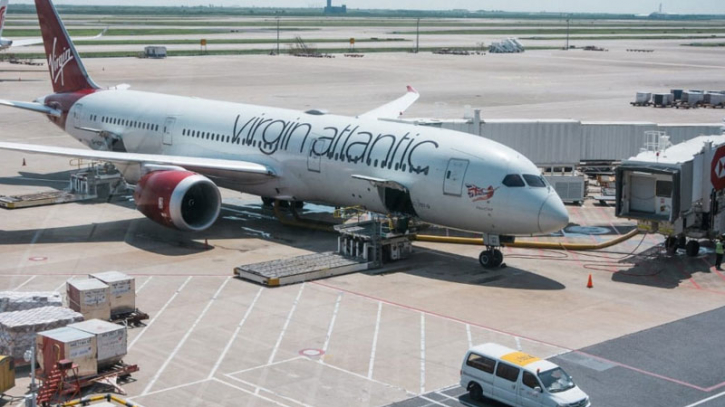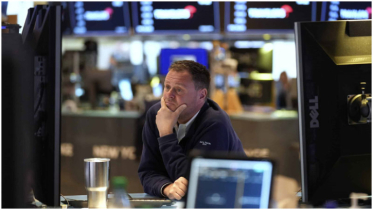First transatlantic flight using 100% green fuels to take-off

The first transatlantic flight powered only by sustainable fuels is set for take-off on Tuesday morning (UK time).
Operated by Virgin Atlantic, it will fly from London's Heathrow Airport to New York's John F. Kennedy International Airport at 11.30 GMT.
Airlines see the flight, which is supported by government funding, as demonstrating that a greener way of flying is possible.
But a lack of supply remains a challenge, while other technology will be needed to hit emissions targets.
So-called sustainable aviation fuels (SAF) can be made from a variety of sources, including crops, household waste and cooking oils.
For this flight, a Boeing 787 will be filled with 50 tonnes of SAF. Two types are being used, with 88% derived from waste fats and the rest from the wastes of corn production in the US.
Following tests and analysis, the flight was approved by UK regulator, the Civil Aviation Authority, earlier this month. A number of companies have been involved in the project, including engine-maker Rolls-Royce and energy giant BP.
The aviation industry is seen as particularly difficult to decarbonise, but airline bosses view SAF as the single most effective way to bring its net emissions down to zero.
Planes still emit carbon when using SAF, but the industry says the "lifecycle emissions" of these fuels can be up to 70% lower.
SAF is already used in small amounts, blended with traditional jet fuel, but accounts for less than 0.1% of the aviation fuel consumed around the world.
It currently costs more than kerosene, and relatively small amounts are made. Aircraft are usually only allowed to use up to 50% in a blend.
There are no dedicated commercial SAF plants in the UK, although the government aim is to have five under construction by 2025, supported by grant funding.
Airlines see the first long-haul flight using 100% SAF as a significant milestone. But experts say such fuels are not a magic bullet.
The UK government also plans to require 10% of aviation fuel to be SAF by 2030.
Airlines UK, which represents UK-registered carriers, said they must be able to access enough affordable SAF to meet such a requirement, with as much as possible coming from the UK.
Environmental campaigners say the only way to cut emissions quickly is to fly less.
But UK ministers and the industry have insisted they believe "net zero" by 2050 is achievable with passenger numbers increasing.
.png)




